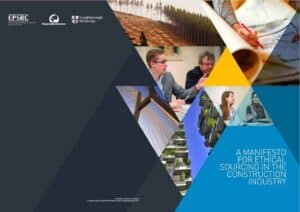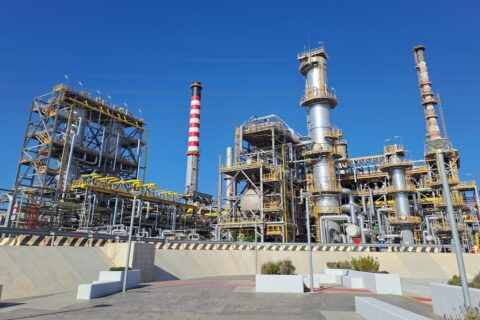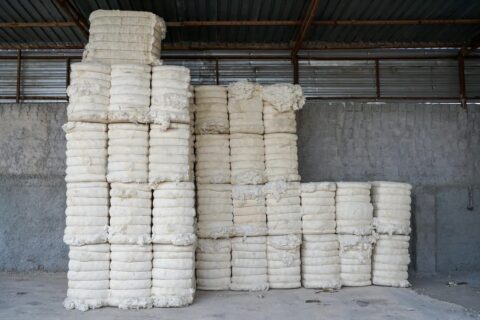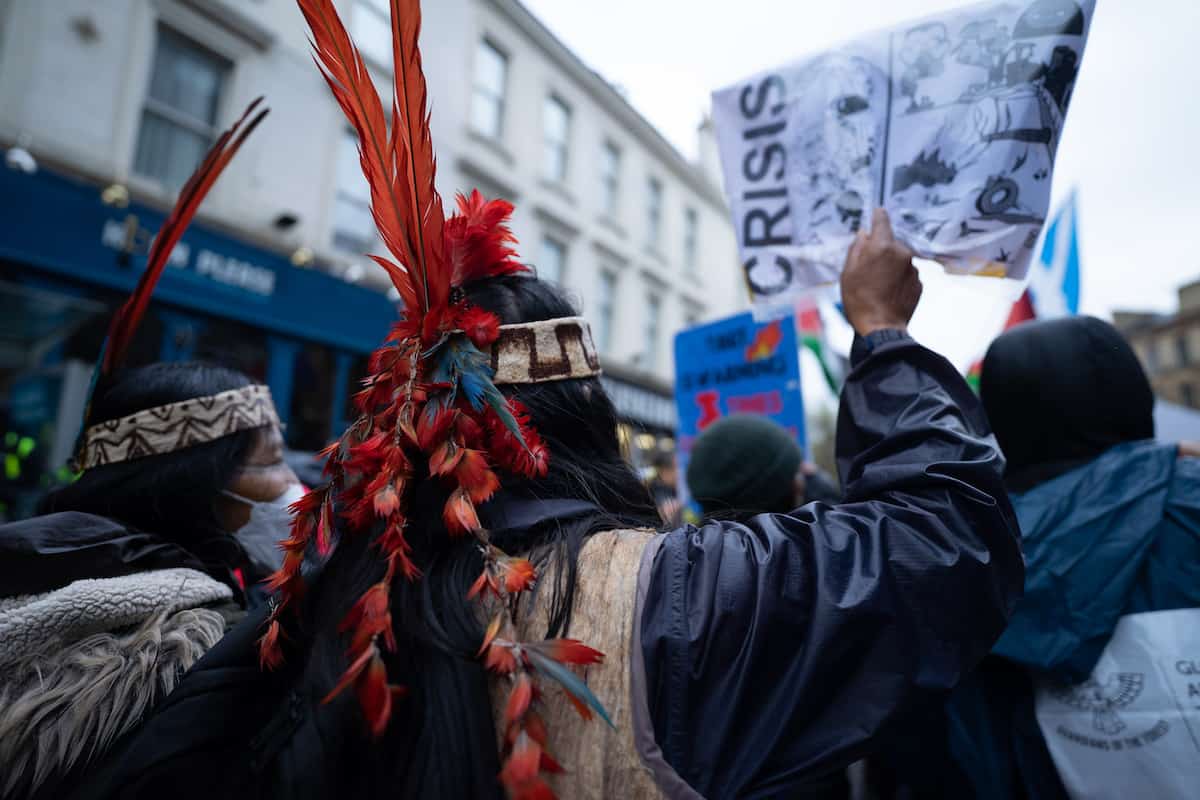10 Pledges to Align Industry Values with Business Ethics & Human Rights
 1 Bribery & Corruption; 2 Labour & Workers’ Rights; 3. Sustainable Development; 4. Traceability & Transparency; 5. Health, Safety & Wellbeing; 6. Legality of Materials; 7. Complex/Manufactured Products; 8. Circular Economy; 9. Certification & Accreditation; plus 10. Openness & Communication.
1 Bribery & Corruption; 2 Labour & Workers’ Rights; 3. Sustainable Development; 4. Traceability & Transparency; 5. Health, Safety & Wellbeing; 6. Legality of Materials; 7. Complex/Manufactured Products; 8. Circular Economy; 9. Certification & Accreditation; plus 10. Openness & Communication.
Tuesday 24 Nov saw the launch of the Manifesto for Ethical Sourcing in Construction, co-created in one of the first-ever industry applications of a ‘Hackathon’.
In 10 pledges, this groundbreaking document sets out the principles and policy statements that underpin a collaborative cross-sector campaign to align construction industry values with those of modern-day business ethics and global human rights. Derived from the world of Silicon Valley software development, the innovative Hackathon model was adapted for construction by the Action Programme on Responsible Sourcing (APRES). Run by Loughborough University, APRES is headed by Professor Jacqueline Glass. The 2015 programme is extending (with £124k funding from the Engineering and Physical Sciences Research Council) to develop AESOP: An Ethical and Social responsibility Portfolio for construction professionals.
For construction, the wake-up call on ethics has already sounded, warns Professor Glass: “In a year when UK businesses are getting to grips with both the introduction of the Living Wage and the implications of the Modern Slavery Act, it seems inevitable that tough questions should start getting asked about ethical policies and practices. In the case of an industry such as construction, known for its long and complex supply chains across global markets, these questions do not simply stop at the entrance to the building site, or even at the UK border.” With the clock ticking, the AESOP platform brings together a broad mix of inputs from leading commercial organisations and academic institutions, within construction and beyond. With the challenge simply too large for any one organisation to tackle alone, collaboration is key and a sector-wide response vital, explains Professor Glass: “We all know the questions; now is the time for answers. The construction industry is rightly being called upon to take a stand and articulate its position on ethical sourcing. In short, the industry needs a Manifesto.”
Cohorts in Co-Creation
In a spirit of co-creation, the Hackathon to draft the Manifesto involved two Cohorts – ‘Construction’ and ‘Critical Friends’ – writing and rewriting online, before meeting to agree the official draft, live at the Royal Academy of Engineering, London. The Construction Cohort of clients, contractors, designers, manufacturers, suppliers and organisations, included British Land, Crossrail, Marks and Spencer, Skanska, Willmott Dixon, BBM Sustainable Design, Marshalls, Saint-Gobain, BRE and CIRIA. The Critical Friends added a deliberately diverse and challenging range of expertise and experience in transparency and traceability, supply chains and ethics. Joining participants in areas aligned to property and construction, including TV-presenter Oliver Heath, were contributors from fashion, food and consumer retail, such as Segura Systems, Fairtrade International and the Good Shopping Guide, plus the Ethical Trading Initiative (ETI).
Alignment & Activism
Managing environmental risks and responsibilities is now almost business-as-usual for construction, with social sustainability emerging in CSR and reporting. The missing piece in the jigsaw of supply-chain excellence and procurement, however, remains ethical sourcing. As such, the new Manifesto will mark the start of a long-term campaign to align industry values with those of corporates and activist communities worldwide.







